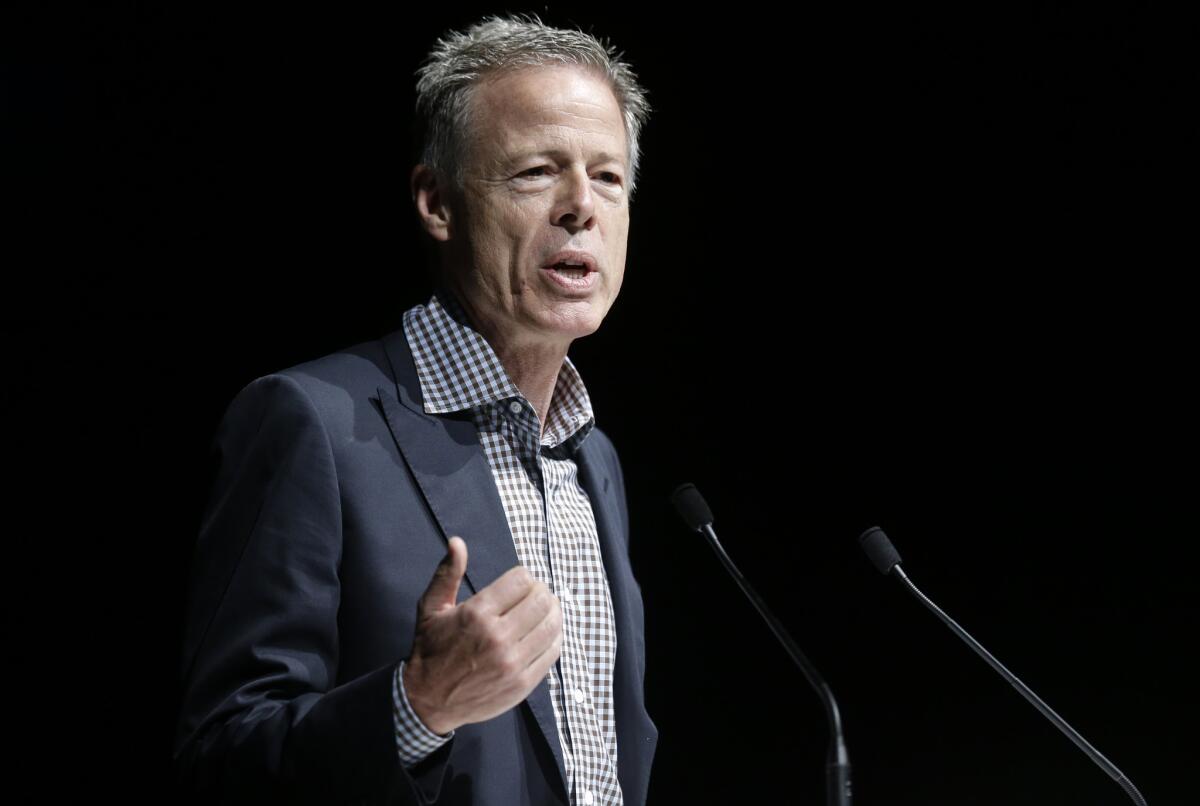Time Warner chief Jeff Bewkes rules out HBO spin-off

Some on Wall Street have been urging Time Warner to spin off its crown jewel -- HBO -- into a separate company.
But Jeff Bewkes, chief executive of Time Warner, said he had no intention of hiving off HBO.
“We are not going to do that,” Bewkes said Wednesday during the 23rd annual Goldman Sachs Communacopia Conference in New York.
Bewkes also said he wasn’t interested in a partial IPO or setting up a tracking stock for investors who wanted to own a piece of the premium pay channel.
Instead, Bewkes said, he was more focused on having the company’s three business units -- HBO, Turner Broadcasting and Warner Bros. in Burbank -- work together. Setting up a stock for HBO would be too disruptive.
Time Warner has faced pressure on Wall Street to detail its strategy to grow its earnings and share price ever since Rupert Murdoch’s 21st Century Fox made an unsolicited bid earlier this summer for Time Warner.
Time Warner refused to entertain discussions with Fox about a takeover. Fox’s bid then collapsed last month when its investors began to sour on the deal.
However, the ground shook a little on Wednesday when Bewkes said he and his management team have been looking more closely at offering HBO directly to consumers.
Such a move would mark a radical business shift. Television viewers, in order to get HBO, currently must subscribe to a traditional package of TV channels, through a pay-TV provider such as DirecTV, Charter Communications or Time Warner Cable. (Time Warner and Time Warner Cable are separate companies.)
Time Warner has not been eager to antagonize its pay-TV distribution partners, which contribute the bulk of HBO’s nearly $5 billion a year in revenue.
So Time Warner hasn’t taken steps to make its HBO Go online streaming option available to customers who do not currently have a pay-TV subscription.
The company rolled out its HBO Go service -- which allows subscribers to watch HBO programming on a smartphone or tablet -- three years ago. There is no additional charge for the streaming option, which has been a hit with TV viewers, particularly young adults.
Last year, the HBO Go offering grew 30% to reach 9 million registered users in the U.S.
Time Warner recognizes that, at some point, it must pivot and make HBO Go more widely available.
“We are seriously considering what is the best way to deal with broadband,” Bewkes said, adding that he had no intention of making any grand announcement this week.
The company has long had on the drawing board plans to eventually offer HBO Go directly to consumers.
But there have been obstacles, including inconsistent speeds and quality of broadband video. In addition, HBO has no system in place to accept payments directly from customers.
Until now, going turning HBO Go into a stand-alone service didn’t make much sense, Bewkes said during the investor conference.
The company figures there is still money to be made working with pay-TV companies as partners. After all, distributors are incentivized to encourage their subscribers to take HBO as part of their service.
“The really good news is that we have viewers clamoring for HBO,” Bewkes said.
Last year, HBO businesses posted operating income of $1.8 billion, according to Time Warner’s annual report.
Twitter: @MegJamesLAT
More to Read
From the Oscars to the Emmys.
Get the Envelope newsletter for exclusive awards season coverage, behind-the-scenes stories from the Envelope podcast and columnist Glenn Whipp’s must-read analysis.
You may occasionally receive promotional content from the Los Angeles Times.







